|
|
Potassium
depletion is relatively common in CRF cats.
The common supplements used in the USA are:
The
best supplement and appropriate dosage for your cat
should be thoroughly discussed with your
veterinarian. |
![]()
|
|
|
|
||
|
|
|
|
|
![]()
|
Potassium Gluconate Potassium
gluconate comes in pills, powders and gels.
Dosage can be a little confusing because products
are marked with the amount of elemental potassium or
the amount of potassium gluconate or the
milliequivalents (mEq) or all three. If
possible, reduce all dosages to elemental potassium
or mEq (milliequivalents) and compare at that level.
For example, let's say the vet prescribes one Tumil-K® twice a day and you want to switch to NOW® Foods potassium gluconate to save money. Each Now Foods pill contains about 25% more elemental potassium, so you'd have to give your cat 4/5 of a NOW® Foods pill twice a day to provide the same potassium as Tumil-K®. You do want to be careful not to overdose potassium - hyperkalemia or high potassium is a serious condition. |
||||||||||||||||||||||||||||||||||||||||||||||||||||||||||||||||||||||
![]()
|
·
Tumil-K®
from Virbac
Corporation
is the potassium supplement most commonly dispensed by
vets. It's available in caplets, powder and a
gel, and requires a veterinary prescription to
purchase from sources other than the veterinary
clinic. The suggested dose of Tumil-K® for adult
cats is one caplet, 1/4 level teaspoonful (0.65g) of
powder or 1/2 teaspoonful (468 mg) of gel per 10 lb.
(4.5 kg) body weight twice daily. Each dose
contains of Tumil-K® contains 2 mEq of potassium or
468 mg of potassium gluconate or 78 mg of elemental
potassium. Dosage may be adjusted to satisfy
patient's need. Form administered is based on
what your cat will tolerate. Some will lick the
gel, some will eat the powder mixed with food, some
will swallow the pill or swallow the pill in a gel
cap. Prices vary widely at veterinary
clinics. Many purchase elsewhere (with a
veterinary prescription) to save a little money:
There are many suppliers for Tumil-K®, far too many to list. Search for Tumil-K on Google's product search. |
|
![]()
|
RenaKare™ from Neogen Corporation is a lower-priced Tumil-K® clone available available in tablets, powder and a gel formats. The suggested dosage for adult cats are is one tablet, 1/4 level teaspoonful (0.65g) of powder or 1/2 teaspoonful (468 mg) of gel per 10 lb. (4.5 kg) body weight twice daily. Each dose contains 2 mEq of potassium or 468 mg of potassium gluconate or 78 mg of elemental potassium. Like Tumil-K®, RenaKare™ requires a veterinary prescription if dispensed by other than a veterinary clinic. Mail order vendors:
|
||
|
|
|
|
|
|
NOW®
Foods makes
potassium gluconate powder and tablets. The
powder is a pure form that delivers 175 mg of
elemental potassium per 1/2 teaspoon. The powder comes in 1 lb containers
(#1471). The tablets deliver 99 mg of elemental
potassium and are packaged in 100
tablet bottles (#1460) and a 250
tablet bottles (#1462). Tablet ingredients
include potassium gluconate, stearic acid, magnesium
stearate, and cellulose. NOW® Foods products are
widely available in health food and vitamin stores -
use the store finder to find local
dealers. If you can't find it locally:
|
|
|
|
|
|
![]()
|
POTASSA-CHEW chewable potassium gluconate. Per the manufacturer, "POTASSA-CHEW makes management of potassium deficiencies easier for the client and the animal, as giving large pills or messy powders and gels may cause more stress to an already stressed animal and owner. Cats readily take this chewable free choice or it can be crumbled on the food. Acceptance of POTASSA-CHEW has been widely tested with over 60% of the cats taking the product free choice and the balance eating it when crumbled and mixed with their food."
|
![]()
|
|
Folks using powdered forms of potassium gluconate (including those who grind pills into powder) often recommend a set of mini-measuring spoons to parcel out the exact dose The set includes five measures from 1/4 teaspoon to 1/64 teaspoon--a tad, a dash, a pinch, a smidgen, and a drop -- and costs anywhere from $3 to $6. You can find it at your local Bed, Bath and Beyond or Linens n' Things or at a cooking shop or online at Amazon.com. |
![]()
Potassium CitrateMany vets like to use potassium citrate to supplement potassium because it also addresses the metabolic acidosis common in CRF cats. It's a prescription drug available in both in a wax-matrix tablets (UROCIT®-K) and liquids (Polycitra-K and Citra-K). Potassium citrate drugs require a prescription.
|
![]()
|
Potassium
Chloride Injectable (Rx) - fluids additive
Potassium chloride (KCL) is a prescription drug injected directly into IV fluids bags so that cats receive potassium supplementation with each infusion. This works fine as long as the cat is receiving frequent infusions. Potassium chloride is not recommended for use orally as it may be contribute to the development of metabolic acidosis - too much acid in the blood. Also, there have been some reports of cats reacting negatively to KCL added to fluids. Don't invest heavily in KCL and syringes until you know your cat can tolerate the infusion of KCL. Potassium Chloride injectable is generally sold in vials ranging from 5 - 30 mL, often in packages of 12 or 25, and in pre filled syringes, often in packs of 10 or 25. Most branded Potassium Chloride injectable is 2 mEq (milliequivalents) per mL. The vials or syringes are each labeled with the total mEq, e.g., a 10 mL bottle will be labeled 20 mEq. 20 mEq is a common dose that's added to a liter (1000 mL) bag of fluids. You'll need a prescription from your vet and sources to obtain the Potassium Chloride INJ in appropriately sized vials or prefilled syringes. If you're using vials, you'll also disposable syringes with needles. Further, you'll need to master appropriate sterile technique to inject the solution into IV bags. And since an overdose of potassium chloride can be fatal, you must exercise extreme care in affirming that you're injecting the correct dosage each time. You should triple check - first checking at the time of purchase that the vials or syringes contain the exact the amount you'll inject each time, second checking at the time of you lay out the vials/syringes for each injection, and last checking when you've filled the syringe and are ready to inject. Remember that high levels of potassium (hyperkalemia) can be as or more harmful than low levels (hypokalemia). Be sure you follow your vets prescription and dosage instructions precisely and have regular blood tests to monitor potassium levels. Buying Potassium Chloride Injectable. Any pharmacy should be able to provide potassium chloride injectable in either vials or pre filled syringes. If they don't have it in stock, they can get it overnight from their wholesaler. Since this is not a common prescription, however, you may have to use some persuasion to get the clerk/pharmacist to find it in their data base, to quote a reasonable price, and to sell it to you. To help in that quest, following are some excerpts from the National Drug Code data base. The NDC codes are vital in helping the clerk/pharmacist find the right drug. All of the following are for 2 mEq/mL solution of potassium chloride injectable in 10 mL volumes - the most common dosage. The key number below is the NDC format - nnnnn-nnnn-nn. The first section of 4-5 digits identifies the vendor, the next 4 digits the drug, and the last two the package size. Drug store computer systems often show all vendor codes as 5 digits, adding a leading zero to the 4-digit vendor numbers. Thus Hospira vendor code of 0409 becomes 00409 in the computer systems of CVS, Target and many others. Potassium chloride should be relatively inexpensive - about $.50-$1.00 a vial. Sample of 20 mEq potassium chloride injectables - both prefilled syringes and vials: POTASSIUM
CHLORIDE FOR INJECTION CONCENTRATE
2MEQ/ML 0517-2210-25 10 ML X 25
VIALS INJ SOL R POTASSIUM
CHLORIDE FOR INJECTION CONCENTRATE
20MEQ/10ML 10797- 221-04 25 X 10
ML VIAL INJ SOL R POTASSIUM
CHLORIDE FOR INJECTION CONCENTRATE
2MEQ/ML 0469-0965-10 25 X 10 ML
VIALS INJ SOL CO R You can check the NDC yourself - http://www.accessdata.fda.gov/scripts/cder/ndc/default.cfm - and search under proprietary name for - POTASSIUM CHLORIDE FOR INJECTION or POTASSIUM CHLORIDE. If you can't find at local pharmacies:
|
![]()
|
This web site first went online in April 2000. It was dedicated to Scooter in September 2003. |
Click on
the Cat |

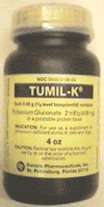
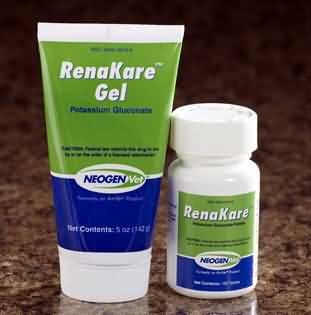
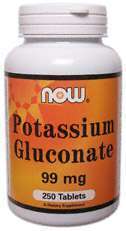
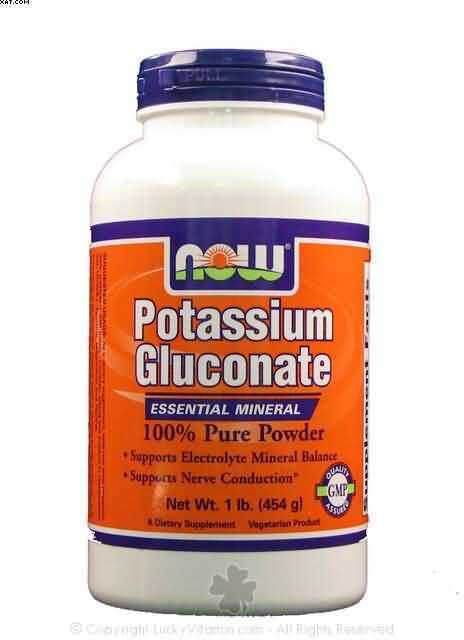

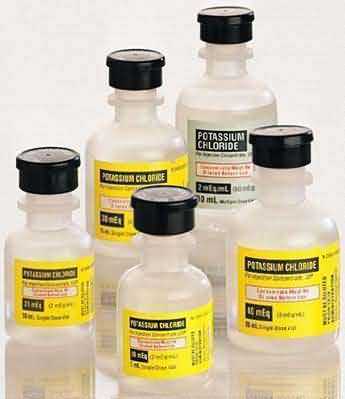
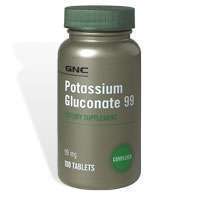


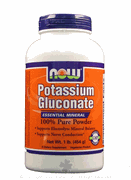
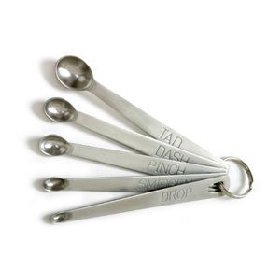

 This web
site is a product of me,
This web
site is a product of me,